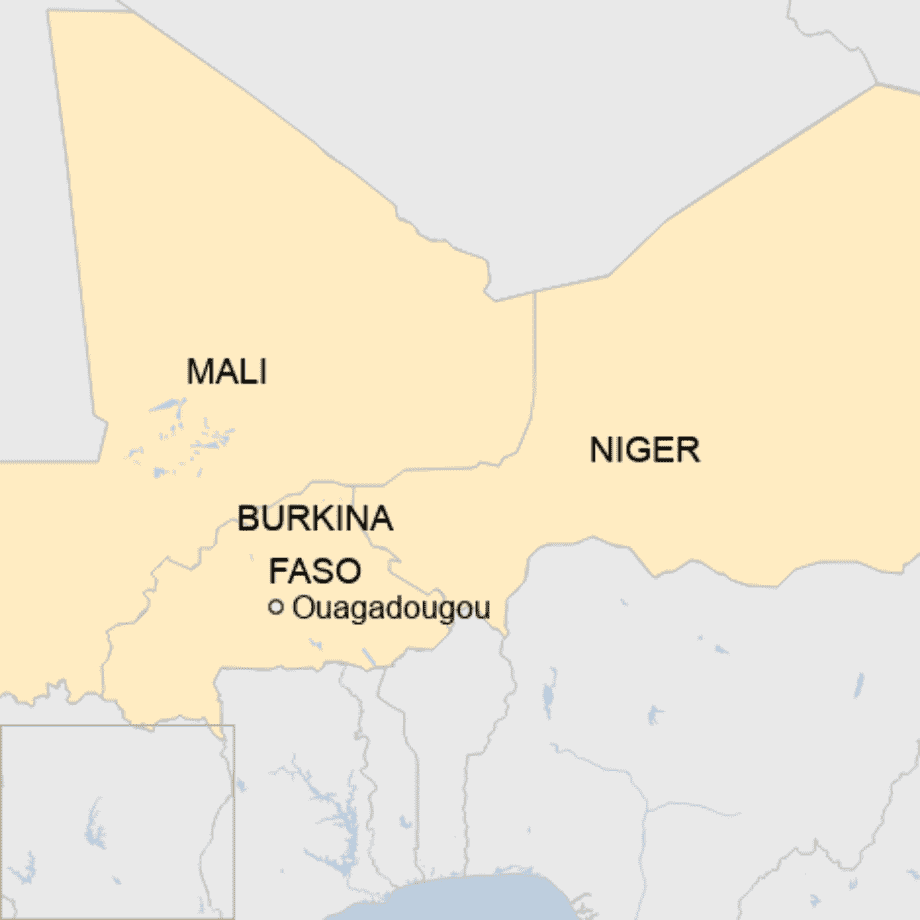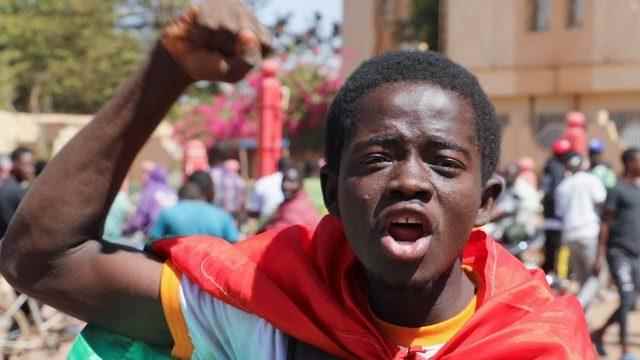The military’s seizure of power in Burkina Faso at the beginning of the week and then the detention of President Roch Kabore did not come as a surprise due to the recent tensions in the region.
There have been four coups in the West African region in the last 17 months.
Two different military interventions took place in Mali, the neighboring country of Burkina Faso, on the grounds that the Islamist militants in the country could not be fought during this time.
In Burkina Faso, people took to the streets in the capital Vagadugu to celebrate Monday’s coup. According to Reuters news agency, some burned the French flag while others danced to live music.
Islamic militant threat and anti-government
The main reasons for the coup in Burkina Faso and the dismissal of Kabore were the deteriorating security situation and the lack of adequate support and resources for the military forces in the country to fight the Islamist militants affiliated with Al Qaeda and the Islamic State of Iraq and Syria (ISIS).
After months of anti-government protests over the resignation of Kabore, who allegedly failed to unite the country, soldiers revolted and seized power in the capital, Vagadugu, and the northern cities of Kaya and Ouahigouya on Sunday.
According to the United Nations (UN) estimates, the number of people who lost their lives due to the attacks of Islamist militants in Burkina Faso since 2015 was more than 2,000, and the number of those who had to leave their places of residence was approximately 1.5 million. Schools are closed in many parts of the country due to the continuing danger.
After the attack by armed groups thought to have come from Mali in June 2021 in the village of Solhan in the north of Burkina Faso, which killed around 130 people, the public thought that the President was unable to cope with the deepening security crisis.
The attack in Solhan village sparked protests in the capital, while Kabore re-established his government and appointed himself defense minister.
In November, another attack on the military base in Inata, in the north of the country, in which 50 members of the security forces were killed, led to increased anger against the government.
It turned out that two weeks before the attack, the military base requested equipment support from the government but did not receive it.
Kabore then appointed a new prime minister and defense minister and participated in national reconciliation talks with opposition parties.
How did militant violence begin in Burkina Faso?
Burkina Faso has managed to maintain its stability for a long time despite the security issues and political uncertainties prevailing in West Africa. However, in 2014, Blaise Compaore, who has been President of the country for 27 years, was overthrown in 2014 by a popular uprising.
A military coup attempt in 2015 caused the division of the military forces in the country. Kabore took office at the time, promising to unify the country.
However, when Kabore took over the administration, Islamist militants from neighboring Mali attacked the capital and attacked the country, taking advantage of the lack of defense at the border gates.
The jihadists have created tensions between the Christian and Muslim communities coexisting in Burkina Faso.
Taking advantage of state weakness and lack of humanitarian aid in Burkina Faso, militants have left the population vulnerable.
People who had to leave their places of residence due to the militant oppression, especially in the northern and eastern parts of the country, could not vote in the presidential election in 2020, in which Kabore won a majority of 58 percent.
Similarities with financial
Burkina Faso’s similarities with its neighbor Mali are causing concern in the country.
Before the military coup in Mali in 2020, there were successive violent attacks followed by large-scale anti-government protests.
However, while the people in Mali support the military coup, Burkinabes are worried that the army will rule the country.
Burkina Faso’s main opposition leader, Eddie Komboigo, is believed to be trying to stir up public anger, taking advantage of security concerns in the country.
Does anti-French play a role too?
Burkina Faso, like Mali, was formerly a French colony. Although both countries declared their independence, France continued to exist both economically and in terms of security forces.
The French army has been conducting an anti-insurgency operation, called Operation Barkhane, against Islamist groups in the region since 2014. As in Mali, Burkina’s security forces need the support of France.
However, with the deteriorating security situation in the country lately, the people do not look at France’s support as much as they used to.
In December, the French military convoy, which brought equipment to the Burkina army as part of Operation Barkhane, was stopped by the people, and the soldiers were accused of collaborating with jihadist groups.
France also had to leave the Sahel region, which includes Burkina and Mali, due to a diplomatic disagreement.
There are concerns that the weakening of security forces in the region could strengthen the jihadists’ presence, while prolonged political uncertainty could undermine the defenses of the G5 Sahel military force, which includes Burkina Faso, Chad, Mali, Mauritania and Nigeria.
While Mali has recently been in talks with Russia for security forces support, other Sahel countries are vehemently opposed.
Concerns in the region
Last September, the African Union and the West African countries bloc, Ecowas, decided to impose sanctions on Mali and Guinea because of the coup attempts.
However, this did not prevent the putschists in Burkina Faso.
When Nigeria’s President Mohamed Bazoum came to the presidency in 2021, there were attacks against the people and the army in addition to the coup attempt in the country.
Bazoum continues to visit sensitive areas in the country to maintain military integrity, which seems to work for now.
Uncertainty in Mali and Burkina Faso also started to create security problems in Ivory Coast, which was exposed to jihadist attacks in 2020.

